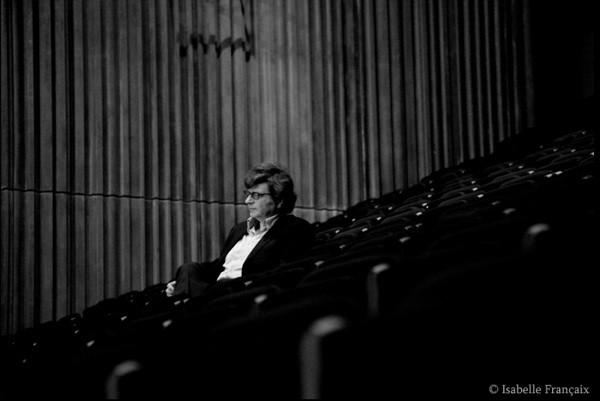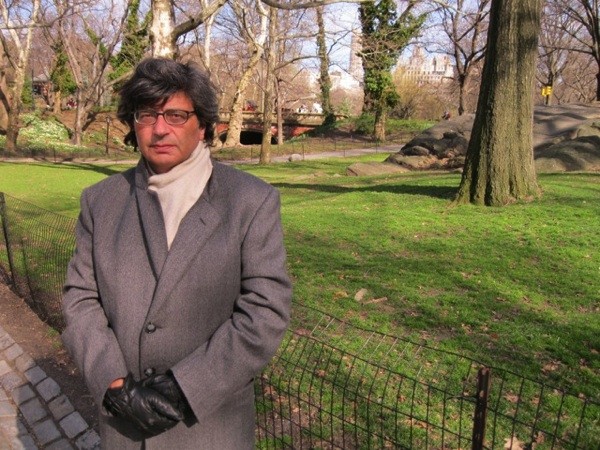La nouvelle pièce POST SCRIPTUM de Victor KISSINE – professeur chargé du cours “Point de vue musical” en BA 1 Cinéma (tronc commun) , a été interprétée par l’Orchestre Symphonique de San Francisco à San Francisco, à Washington et au prestigieux Carnegie Hall à New York. Voici une des nombreuses critiques élogieuses qui le consacre parmi les plus grands.
A Symphony premiere with verve
Joshua Kosman, Chronicle Music Critic
Charles Ives is generally cited as the great progenitor of American classical music, but it turns out that the tendrils of his influence and his example have an international reach. Ives’ transcendentalist fervor takes on a Russian cast in Victor Kissine’s “Post-scriptum,” a beautiful, mysterious orchestral essay that had its world premiere in Davies Symphony Hall on Thursday night.
The work was commissioned by and dedicated to Michael Tilson Thomas and the San Francisco Symphony, who played the piece with a wonderful combination of tender specificity and verve. And those qualities were the thematic constants in a largely powerful concert.
Kissine, who was born and raised in the Soviet Union and relocated to Belgium in 1990, describes “Post-scriptum” as a response to Ives’ metaphysical masterpiece “The Unanswered Question.” The links are not so much thematic as structural – like its model, Kissine’s work unfolds in a series of restlessly questing episodes, each one approaching nearer to some elusive epiphany.
A listener can hear the growing certainty of this quest, proceeding from the shimmery mood of anticipation that infuses the first third of the piece to the increasingly definitive statements by the brass and timpani. Yet each attempt to reach a firm musical conclusion winds up imploding, vanishing into the near-silence of doubt and afterthoughts.
Like his older Russian compatriots, Sofia Gubaidulina and Alfred Schnittke – whose influence mingles with that of Ives in “Post-scriptum” – Kissine writes in a distinctive middle range between melody and pure texture. Dramatic themes will emerge for the space of five or six notes, then subside into a wash of virtuosically rendered orchestral color.
Kissine’s mastery of the orchestra, in fact, is one of the most striking aspects of “Post-scriptum.” The big chords that well up at the piece’s main structural points are superbly weighted and characterized – sometimes as sheer mass, sometimes built with a detectably hollow core – and the vague echoes that linger after each one, like the afterimage of a bright light on the retina, are marvelous inventions.
Thomas and the orchestra gave a sensitive reading of the piece, full of nuance and empathy, and then roared into the second half with superb accounts of two orchestral showpieces.
Ravel’s “Valses nobles et sentimentales” must count among Thomas and the orchestra’s trademark party pieces. They play these dances with zest and imagination, and Thursday’s performance was a vibrant mix of kinetic grace and breathless sweep, leading up to a luminous close. Liszt’s “Tasso: Lamento e Trionfo” was done in full Technicolor, stinting nothing on either sensuality or grandeur.
The evening’s only disappointment was Tchaikovsky’s Violin Concerto, with an uncharacteristically labored and graceless solo turn by violinist Christian Tetzlaff. Tetzlaff has given many great performances here over the years, and even some brilliant ones; Thursday’s contribution, full of tuning lapses and rhythmic carelessness, was obviously an off night.sfsymphony.org.
Christian Tetzlaff is the soloist in the Tchaikovsky Violin Concerto. San Francisco Symphony

Photographies : Isabelle Françaix
